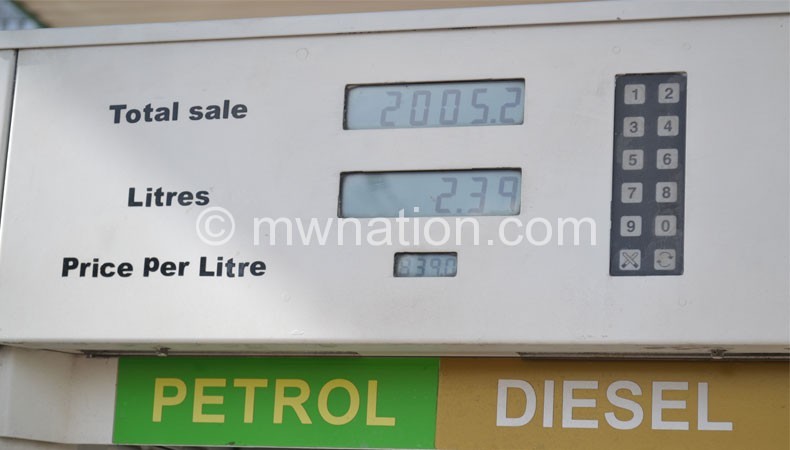Mera maintains fuel, electricity prices
Malawi Energy Regulatory Authority (Mera) has maintained fuel and electricity prices at current levels despite the kwacha appreciating since the last downward revision in February which has made prices of imports such as fuel fairly cheaper.
Since the energy regulatory adopted the automatic pricing mechanism (APM) in June 2012, fuel pump prices are adjusted to reflect fuel price movements on the international market and pump price adjustments reflect the changes in the value of In Bond Landed Cost (IBLC) of petroleum products and movements of the kwacha against the dollar.

The APM operates within a threshold of plus or minus five percent which is also the trigger limit, meaning that a change in IBLC of more than five percent, will trigger a price adjustment.
Mera in a published statement said since February 6 when pump prices were last revised, Free on Board (FOB) prices for petrol and diesel increased by 7.54 percent and 0.99 percent respectively, while paraffin FOB prices decreased by 1.01 percent.
“Geopolitical factors led by the standoff between Kiev and Moscow continue to push upwards oil prices,” said a statement signed by Lyton Zinyemba, board chairperson of Mera.
The kwacha has since the last price revision appreciated against the dollar from K445 to K412 to a dollar, representing a gain in value of eight percent of the local currency against the dollar.
Fuel pump prices have been maintained at K839, K853.40 and K719.30 per litres for petrol, diesel and paraffin.
On electricity, Mera reviews tariffs under what is called automatic tariff adjustment formula (Ataf).
The energy regulatory explained that on the basis of the inflation rate of 24.6 percent and an exchange rate of K423 to a dollar applied as of April 4 the time new Escom base tariff was implemented and comparing the same with figures on the exchange rate of K412 to a dollar and inflation rate of 24 percent as of May 5, the overall impact of changes in inflation and exchange rate translated to -1.89 percent downward tariff adjustment.
“It has been noted that the impact of both inflation and exchange rate movements in the month of April 2014 have resulted in a change that is within the statutory of plus or minus five percent trigger limit for adjusting electricity tariff through Ataf,” said Mera.
Mera has since maintained electricity tariffs at K35.69 per kilowatts per hour.
The kwacha has continued its marginal appreciation against major foreign trading currencies buoyed by trickling tobacco earnings, a development that could make imports affordable and probably result in lower fuel prices and other imports, according to Nico Asset Managers Limited.
The easing in the price of fuel is good news because its leaves households with more disposable income to spend on other things other than fuel.
“The exchange rate is expected to continue appreciating as proceeds from tobacco continue to pour into the country,” said the investment advisory firm in its economic report for April 2014.
Currently, with the tobacco sales in progress, more foreign exchange is being realised which is increasing the forex buffer pushing up the import cover.






Kodi chithunzicho mwachitani? ife timafuna tione mkaziyotu.